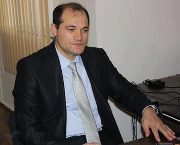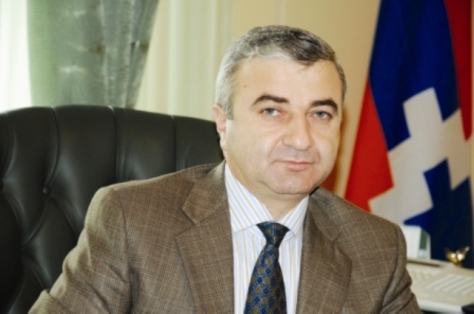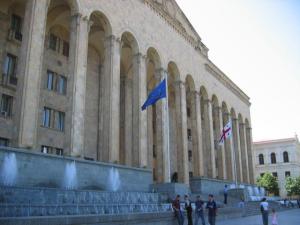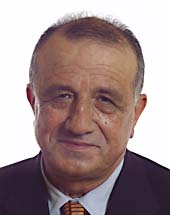Political parties in Georgia have started preparing candidates for next October’s parliamentary elections.

Davit Sakvarelidze, has resigned from his post as First Deputy Prosecutor General of Georgia to contest a parliamentary seat in the capital Tbilisi
The First Deputy Prosecutor General of Georgia, Davit Sakvarelidze, announced on June 11 that he was resigning in order to enter politics. Georgian media have speculated over the last days that Sakvarelidze will become the majoritarian candidate for the ruling United National movement (UNM) in the Krtsanisi District of the Capital Tbilisi.
A UNM official told the Georgian news portal Civil.ge on that Sakvarelidze’s possible candidacy in Krtsanisi single-mandate constituency was under consideration, but no final decision was yet made.
In the meantime, at a Rally held in Kutaisi, the leader of the Georgian Dream Coalition, Bidhzina Ivanishvili has named six out of the twelve majoritarian candidates for the Imereti region of Georgia.
Gubaz Sanikidze, one of the leaders of National Forum – one of the parties within the Georgian Dream coalition will run in Kutaisi, which is Georgia’s second largest city and one of the largest single-mandate constituencies.

Kakha Kaladze, a retired footballer, who was a captain of the Georgian national team and who won the Champions League on two occasions with AC Milan, will run in his native town of Samtredia. He is pictured hear wearing the distinctive red and black Milan colours during match with Fiorentina
Kakha Kaladze, a retired footballer, who was a captain of the Georgian national team and who won the Champions League on two occasions with AC Milan, will run in his native town of Samtredia. More…
 The outgoing United States Ambassador to Georgia, John Bass, a few days ago addressed the American Atlantic Council, a Washington based think-tank, during which he took a wide angle look at Georgian politics. It was a thoughtful reflection by a diplomat at the end of an intensive three year period as his country’s main representative in Tbilisi, and it covered many important points. Although the speech was largely sympathetic to the Georgian government, Bass did raise sensitively a number of important shortcomings.
The outgoing United States Ambassador to Georgia, John Bass, a few days ago addressed the American Atlantic Council, a Washington based think-tank, during which he took a wide angle look at Georgian politics. It was a thoughtful reflection by a diplomat at the end of an intensive three year period as his country’s main representative in Tbilisi, and it covered many important points. Although the speech was largely sympathetic to the Georgian government, Bass did raise sensitively a number of important shortcomings.














